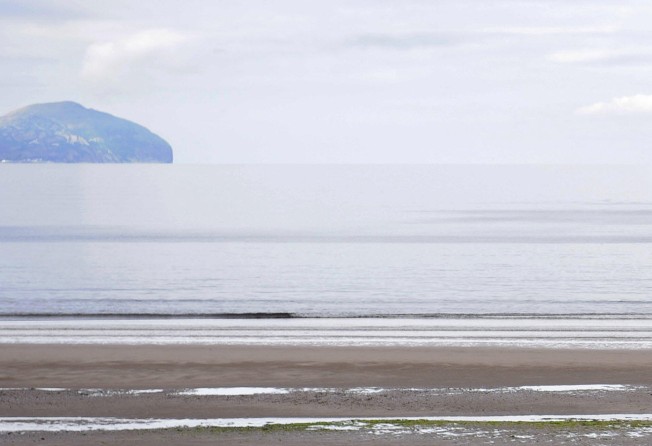
Scotland's Ailsa Craig island up for sale by owners for US$2.4 million
US$2.4m price tag fails to attract new owner to legendary 'craggy ocean pyramid' that has been part of country's consciousness for centuries

This stunning volcanic island has been part of Scottish legend for 1,000 years, its sugarloaf profile decorating Scottish bank notes and memorialised by Keats.
It has no inhabitants, no electricity, no fresh water and no arable land - nothing of value, it would seem, but for this: For a century and more, its quarries have been the source of the distinctive, water-resistant micro granite used to make most of the world's curling stones.
These include all those used in recent world championships and every Olympics since 1924, including the Sochi Games that begin in February.
But the modest income from the quarrying of the island's prized strains of blue hone and common green and a lease granted to Britain's Royal Society for the Protection of Birds has taxed the dwindling resources of its owner, the eighth Marquess of Ailsa, whose family has owned the island for 500 years.
Like many of Britain's old landowning families, the marquess' family has been through decades of retrenchment as a result of inheritance taxes. It lost the family seat, Culzean Castle, to the National Trust in 1945, and in 2010 the current marquess decided to part with Ailsa Craig, with an initial price of US$4 million.
That figure was later cut to US$2.4 million, and as the waters of the Firth of Clyde have lapped at Ailsa Craig's rocky shore each day, little has changed in the intervening years. The island remains misty, monumental and for sale.
When Keats first saw the island soaring 1,100 feet into the sky off Scotland's west coast in 1818, he wrote a sonnet in which he described it as a "craggy ocean pyramid," summoned from the deep by some mythic power, and attended for eternity by eagles and whales.
This month, approaching across 16 kilometres of shimmering open sea aboard his 10 metre lobster boat, the M.V. Glorious, the skipper, Mark McCrindle, broke the silence of his cramped wheelhouse to say that in 30 years of plying the waters from the nearby port of Girvan, he had rarely seen it looking more majestic. "Aye," he said, "she's a beauty."
Finding a buyer will require more than the poetic flights of Keats, or "the dreams" the 57-year-old marquess says he would be selling to anyone whose fancy runs to an island that has no modern conveniences, no active forms of employment since the quarrying ended in 1969, and only one habitable structure among the rusting, roofless ruins of the quarters once used by men working in the lighthouse or the quarries.
So it is little surprise to find that property agents listing it reach for hyperbole in stating its attractions. "The only island to win a gold medal in the Olympic Games!" says Farhad Vladi of the Hamburg-based company Vladi Private Islands. He claims to have sold more than 2,000 islands across the globe, many of them in more enticing, or at least warmer, locations than the Firth of Clyde.

Waiting for an offer on what he calls his rock, the marquess - who also goes by the name of Archibald Angus Charles Kennedy - reveals little sentiment about the prospect of giving up ownership of the island, which the listing agents say has failed to attract any serious interest.
"It's going to go out of the family," he said. "But I think of it this way: It's always going to be there, and it really doesn't matter who owns it."